Star cars at the LA Show
While manhole covers were being sucked up at the Los Angeles Formula 1 Grand Prix (resulting in urgent track repairs and red faces), downtown at the Los Angeles Convention Center the 2023 LA Auto Show was getting underway with fewer glitches. LA is a long way from the fleet market in the UK I know, … Continued

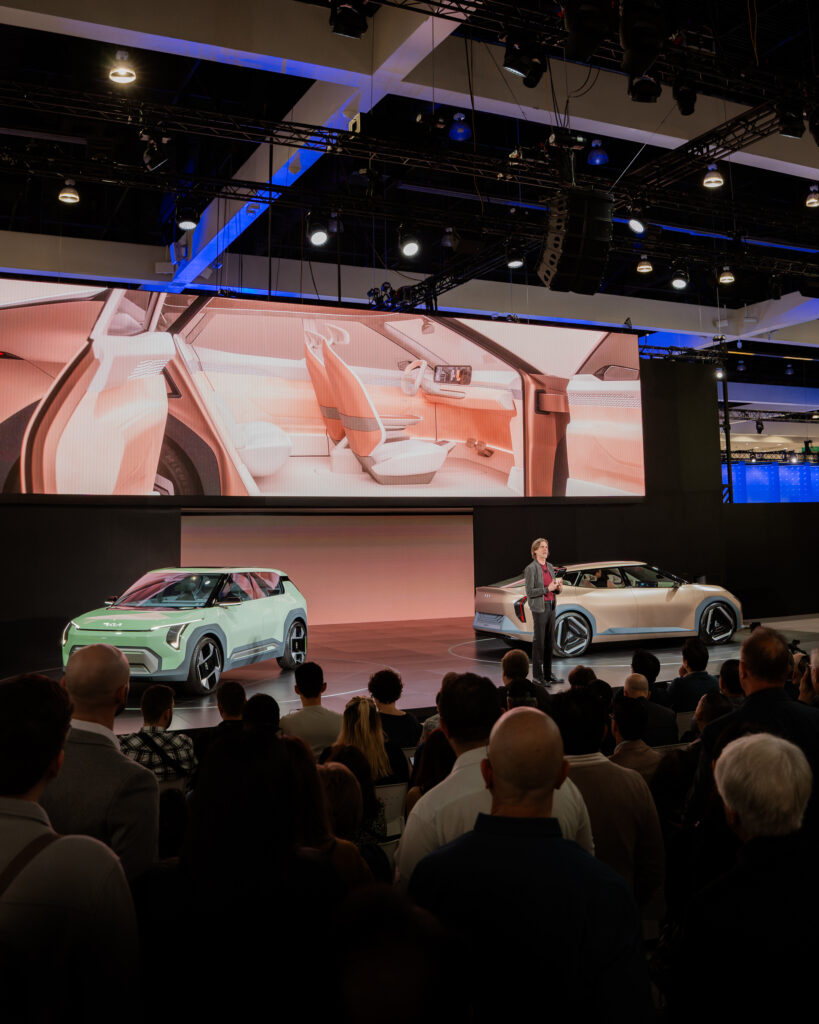 Here was a chance to see the EV3 and EV4 concept models. The EV3 is a compact SUV, while the EV4 is a small saloon. Both feature Kia’s new Opposites United design themes – angularity meets traditional design tenets – which we have already seen in the new EV9 SUV. I like this fusing of styles. It certainly creates a very distinct presence on the road.
Here was a chance to see the EV3 and EV4 concept models. The EV3 is a compact SUV, while the EV4 is a small saloon. Both feature Kia’s new Opposites United design themes – angularity meets traditional design tenets – which we have already seen in the new EV9 SUV. I like this fusing of styles. It certainly creates a very distinct presence on the road.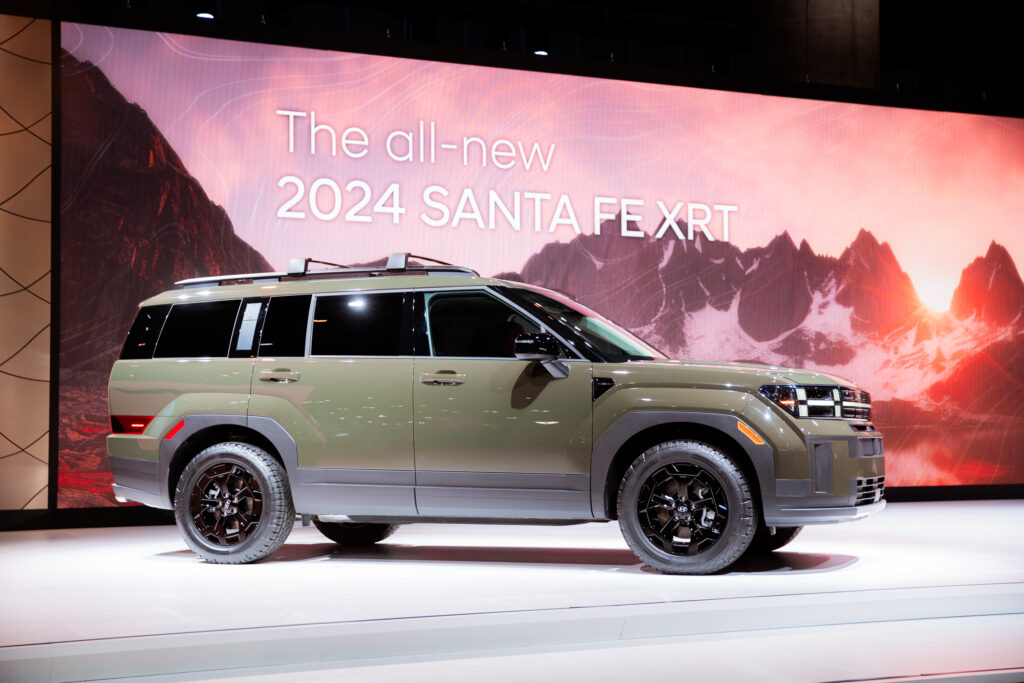 Also on show and making its US debut was the Hyundai Santa Fe. This enormous seven-seater SUV provides greater space inside thanks to a longer wheelbase on this new version, although the two rearmost seats are definitely for smaller or younger people.
Also on show and making its US debut was the Hyundai Santa Fe. This enormous seven-seater SUV provides greater space inside thanks to a longer wheelbase on this new version, although the two rearmost seats are definitely for smaller or younger people.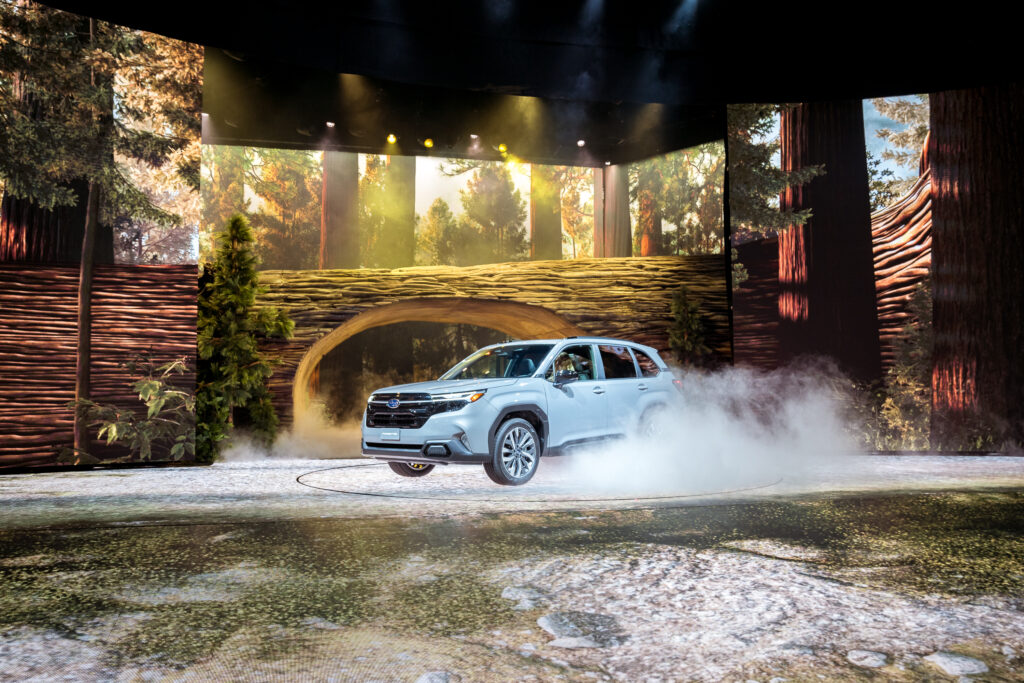 The Forester is a minority interest in fleet, but for some drivers, its four-wheel drive ability is essential for the jobs and terrain they need to tackle. They’ll be pleased to hear that the new model comes with an updated version of its sure-footed Symmetrical All-Wheel Drive system, offering a faster response time and better control both on- and off-road. There’s also the distinct possibility that a hybrid petrol-electric engine will be on offer when it comes to the UK next year.
The Forester is a minority interest in fleet, but for some drivers, its four-wheel drive ability is essential for the jobs and terrain they need to tackle. They’ll be pleased to hear that the new model comes with an updated version of its sure-footed Symmetrical All-Wheel Drive system, offering a faster response time and better control both on- and off-road. There’s also the distinct possibility that a hybrid petrol-electric engine will be on offer when it comes to the UK next year.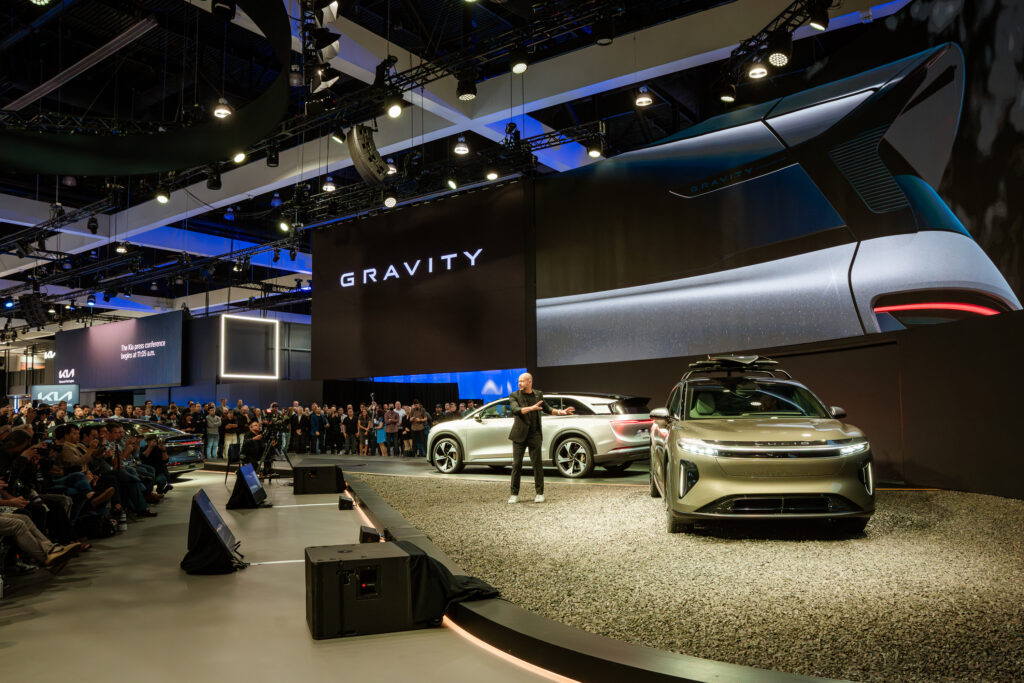 You might have heard of Amercian EV start-up Lucid. Its first model – the Lucid Air – has a range of 440 miles and won the 2023 World Luxury Car Award.
You might have heard of Amercian EV start-up Lucid. Its first model – the Lucid Air – has a range of 440 miles and won the 2023 World Luxury Car Award.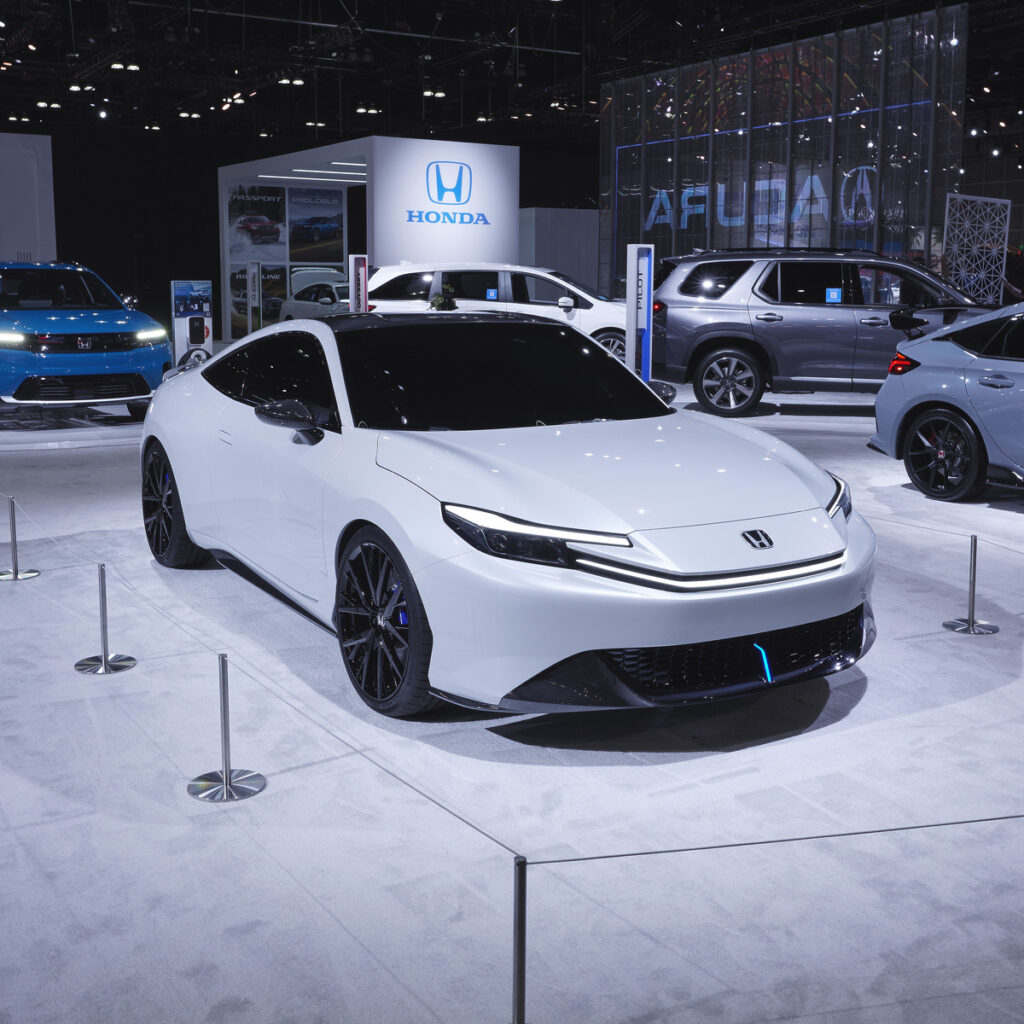 Honda can sometimes serve up a take-it-or-leave-it mix of models, but it always hits the button when it comes to sporting cars: think NSX, Type R, S2000 and…Prelude, which is what we have here.
Honda can sometimes serve up a take-it-or-leave-it mix of models, but it always hits the button when it comes to sporting cars: think NSX, Type R, S2000 and…Prelude, which is what we have here.